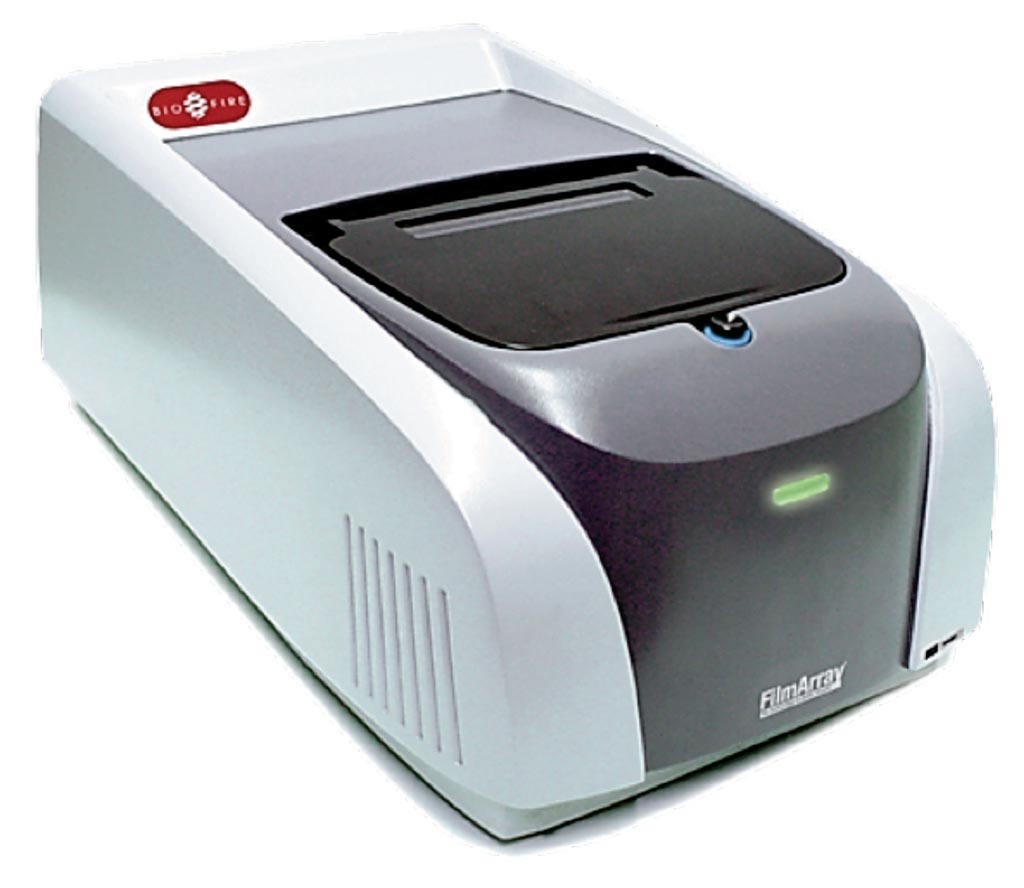Novel Flu Test Developed to Speed Up Treatment
By LabMedica International staff writers
Posted on 20 Apr 2017
A novel way of using a swab test has been developed which can rapidly diagnose influenza and other viral infections in patients with severe respiratory conditions, resulting in shorter courses of antibiotics and less time in hospital.Posted on 20 Apr 2017
Rapid point-of-care testing (POCT) for respiratory viruses might improve clinical care by reducing unnecessary antibiotic use, shortening length of hospital stay, improving influenza detection and treatment, and rationalizing isolation facility use; however, insufficient evidence exists to support its use over standard clinical care.

Image: The FilmArray multiplex polymerase chain reaction system used for point-of -care diagnosis of acute respiratory diseases (Photo courtesy of bioMérieux).
Doctors and their colleagues at University Hospital Southampton enrolled adults, aged equal to or over 18 years within 24 hours of presenting to the emergency department or acute medical unit of a large UK hospital with acute respiratory illness or fever higher than 37.5 °C for less than seven days duration, or both, over two winter seasons. Patients were randomly assigned (1:1), via an internet-based allocation sequence with random permuted blocks, to have a molecular POCT for respiratory viruses or routine clinical care.
Of the 301 (84%) of 360 patients in the POCT group received antibiotics compared with 294 (83%) of 354 controls and mean duration of antibiotics did not differ between groups (7·2 ± 5.1 days). The investigators found that 50/301(17%) of patients treated with antibiotics in the POCT group received single doses or brief courses of antibiotics (less than 48 hours) compared with 26 (9%) of 294 patients in the control group. Mean length of stay was shorter in the POCT group (5.7 ± 6·3 days) than in the control group (6·8 ± 7.7 days).
The authors concluded that patients who had the point-of-care test got the right treatment for their lung condition faster. In addition, patients who tested positive for influenza in the point-of-care testing group were appropriately isolated in a side room and given antiviral medication more often and sooner than those in the standard care group.
Tristan W Clark, MD, an associate professor in infectious diseases and senior author of the study, said, “My vision is that anyone who comes into hospital with an acute respiratory condition will receive this point-of-care test as soon as they come through the hospital door. It tells us immediately what virus the person has so, for example, if they have influenza they can be isolated in a side room and given antiviral drugs without delay.” The study was published on April 6, 2017, in the journal Lancet Respiratory Medicine.








 Analyzer.jpg)





